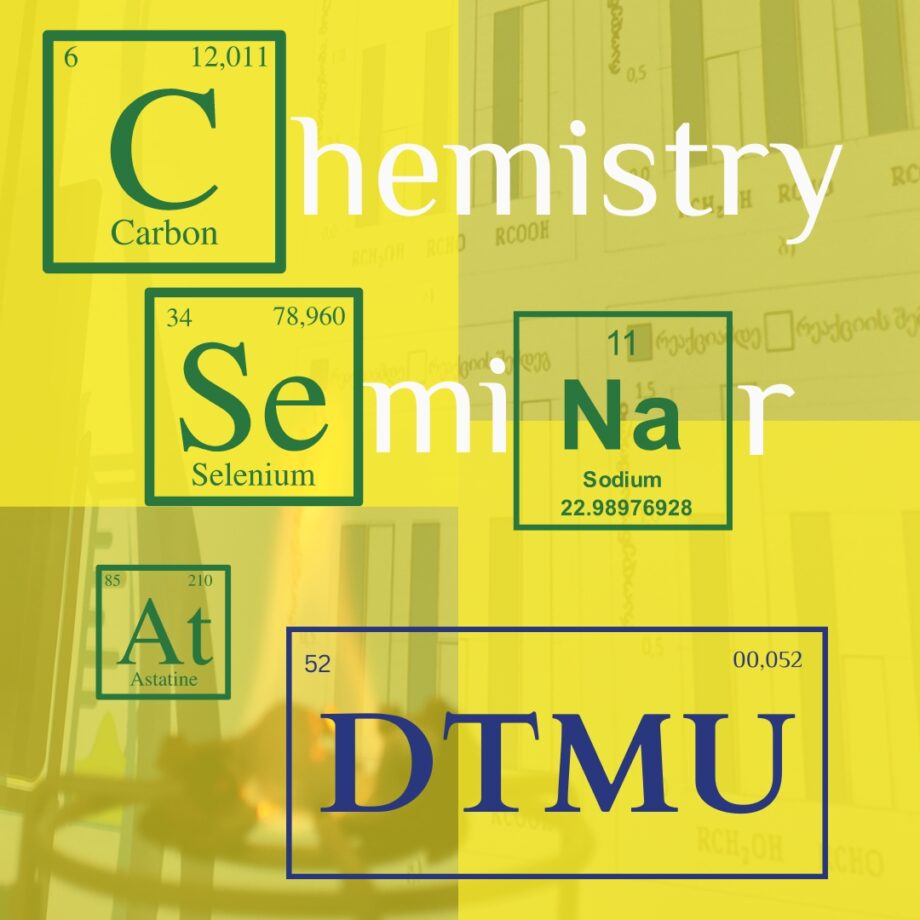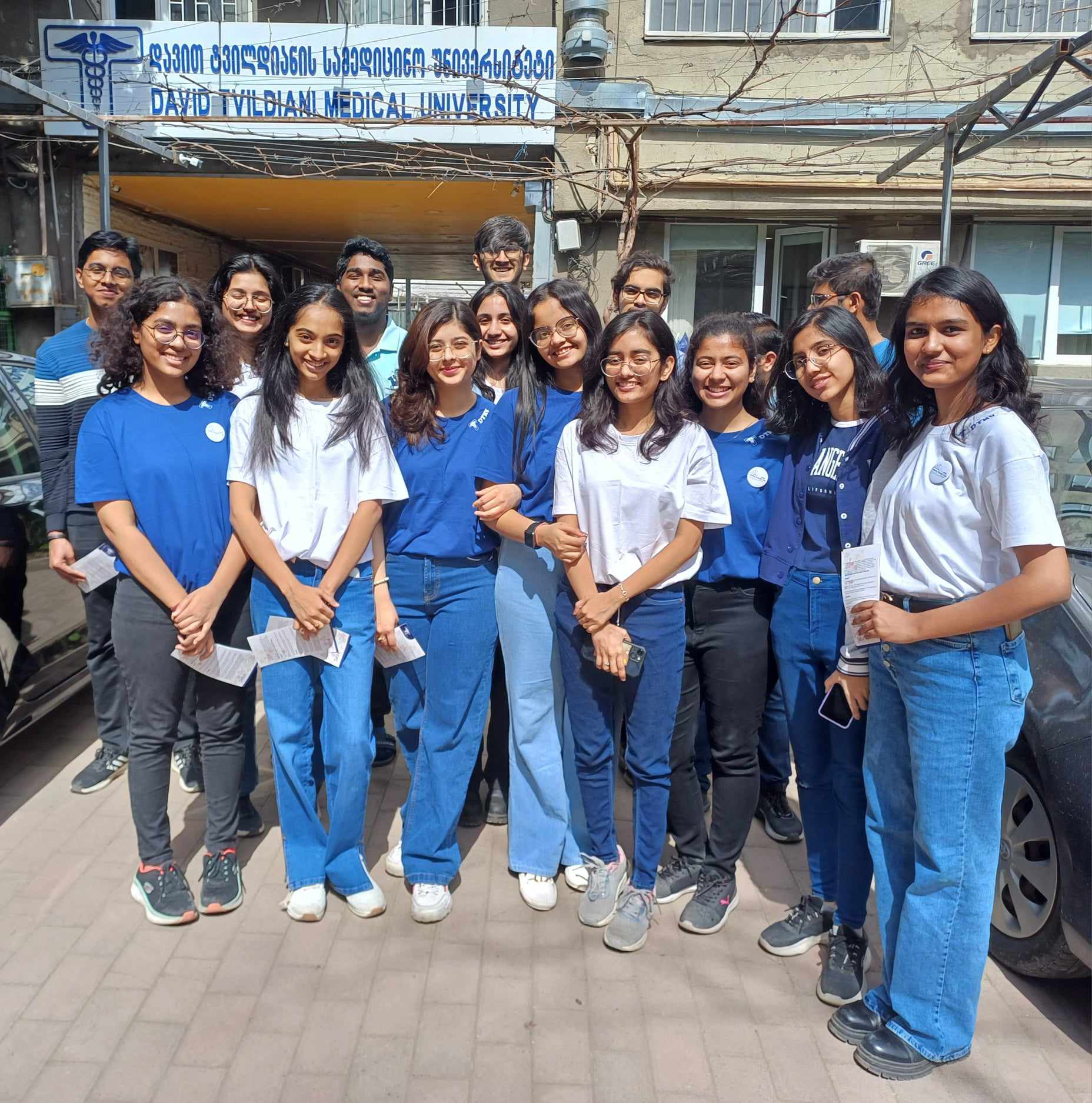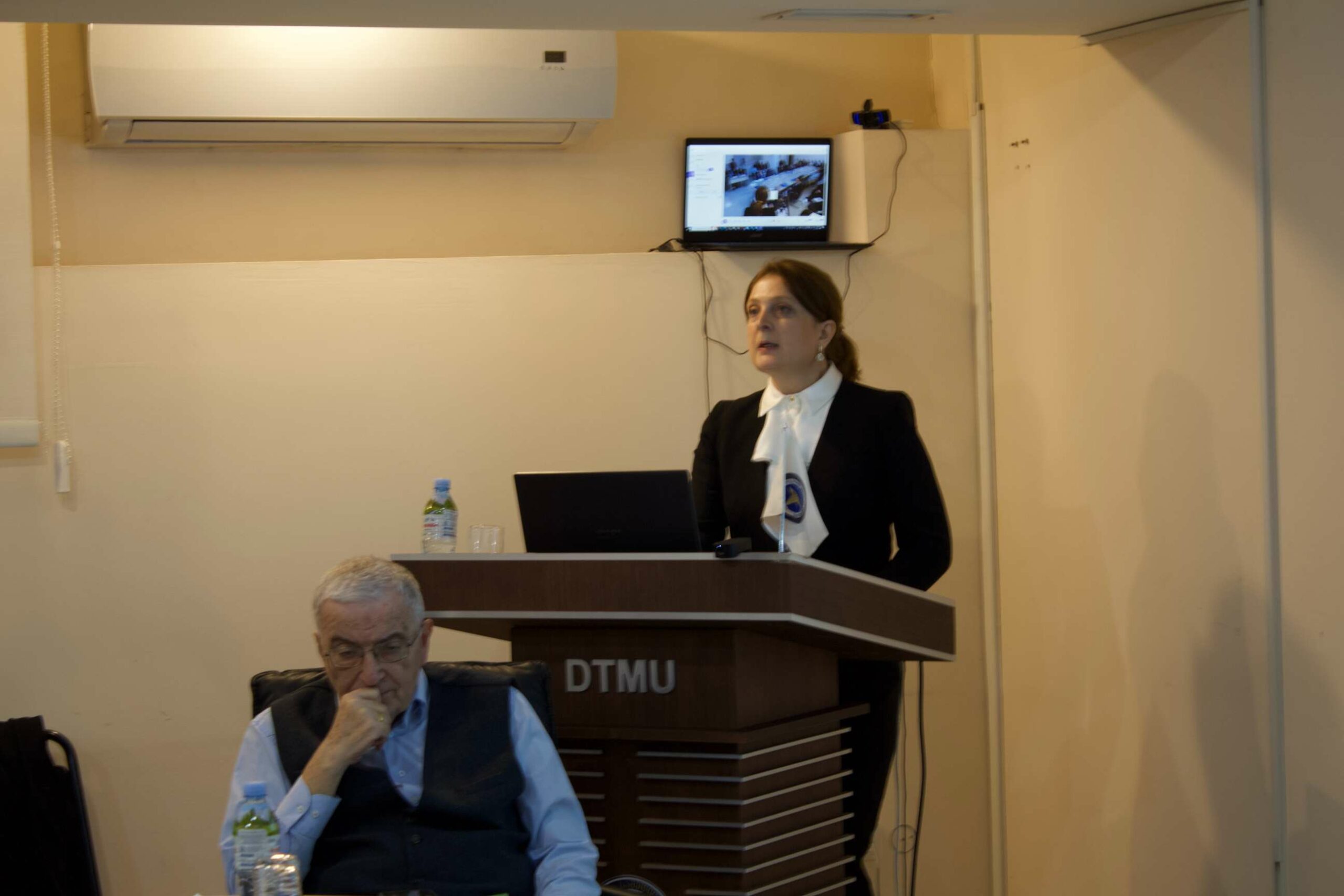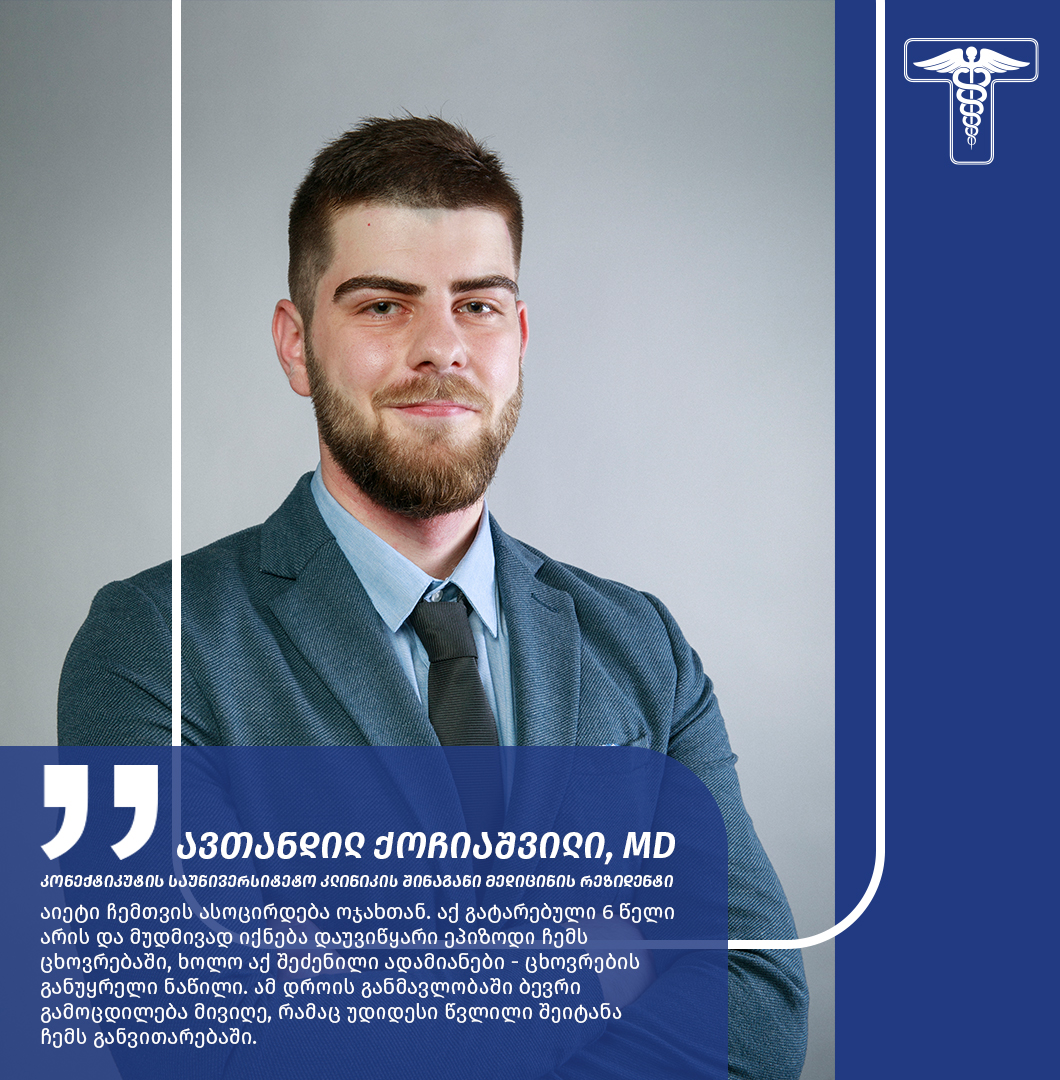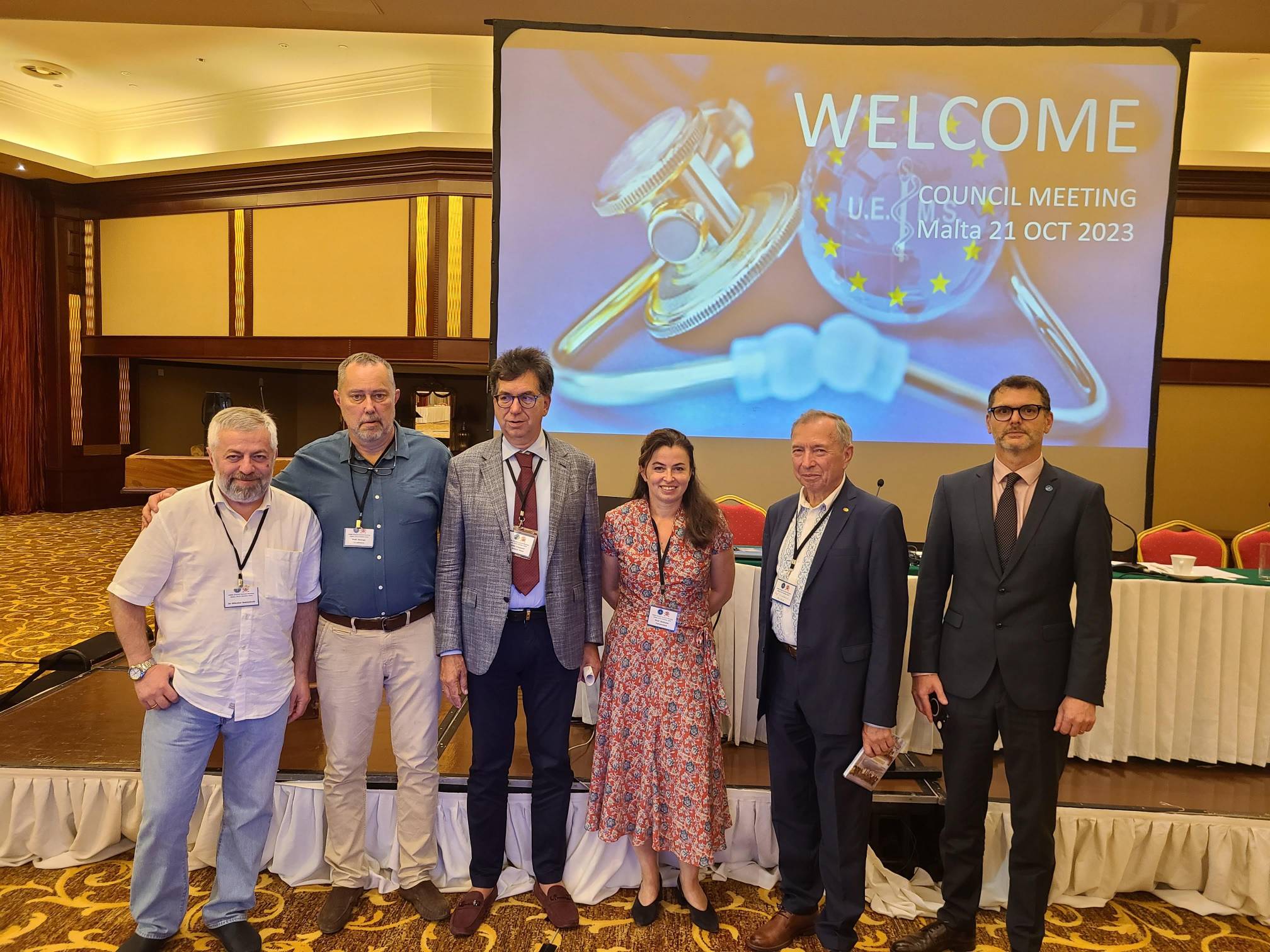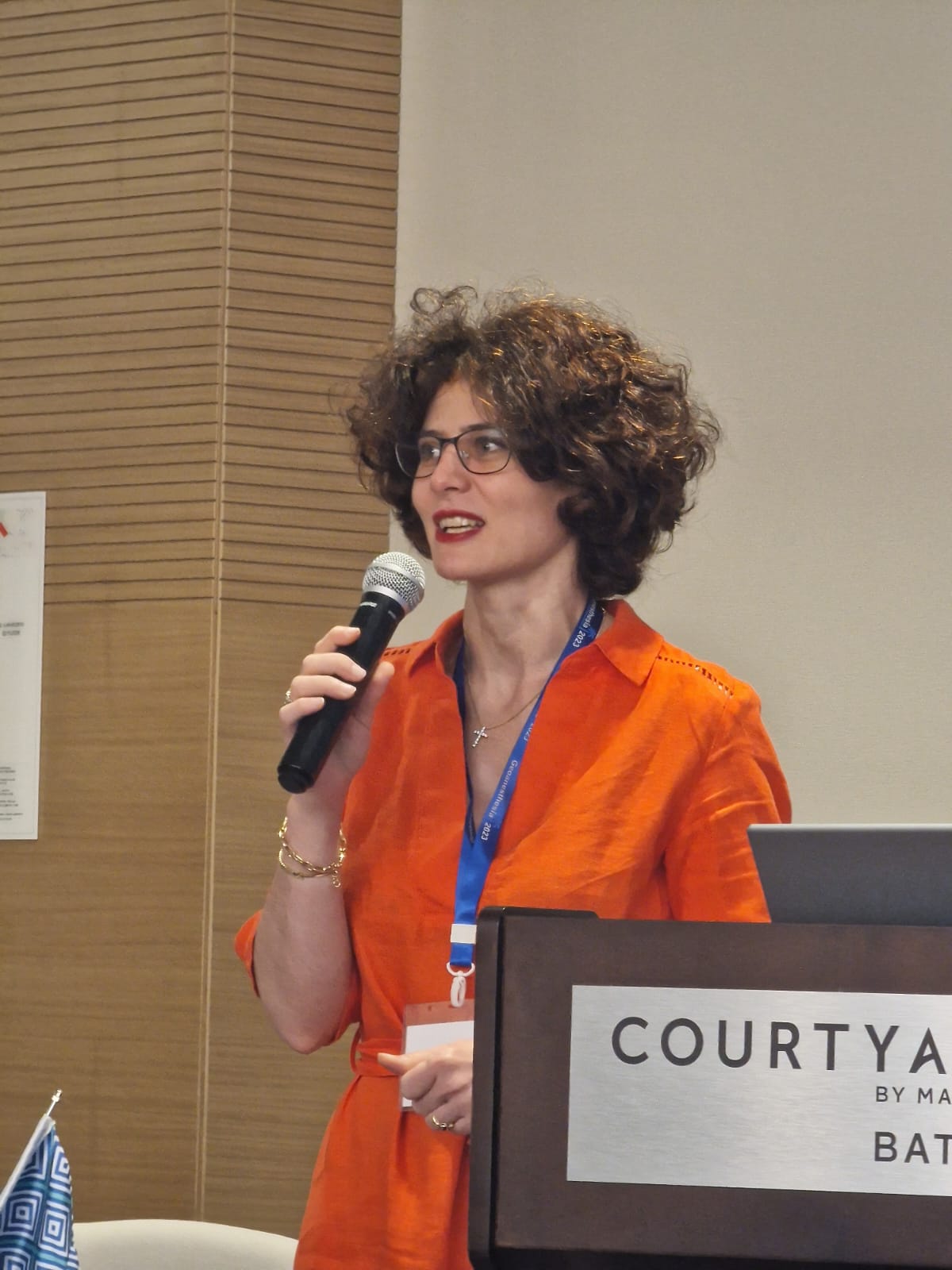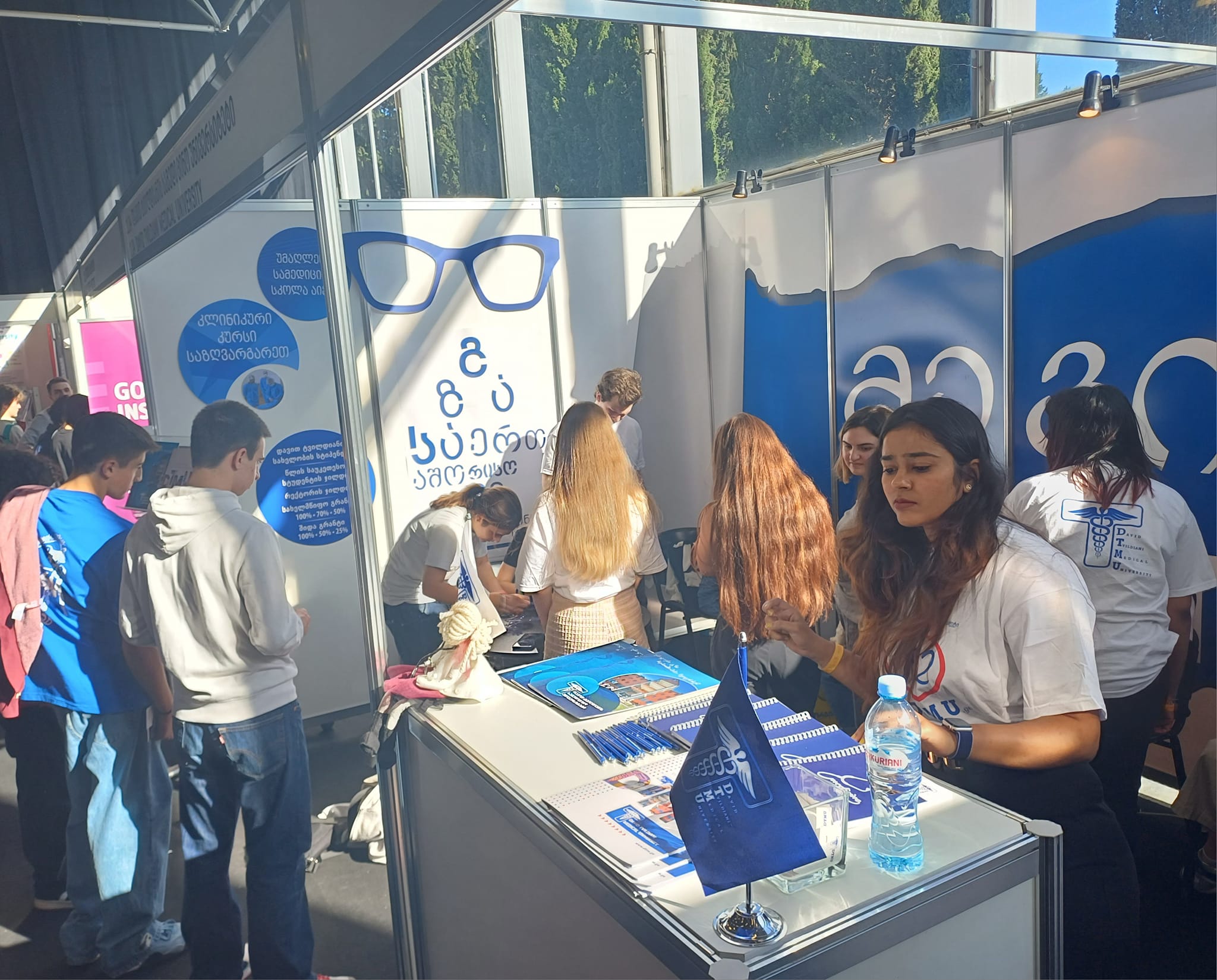ა.წ. 18-20 აპრილს („შერატონ გრანდ თბილისი მეტეხი პალასი“) ტარდება საერთაშორისო კონფერენცია, თემაზე – „ბიოსამედიცინო და …
აბიტურიენტების მხრიდან მაღალი ინტერესის გამო, დავით ტვილდიანის სამედიცინო უნივერსიტეტში, ერთიანი ეროვნული გამოცდებისთვის მოსამზადებელი სემინარი ჩატარდა. …
2 აპრილი აუტიზმის ცნობადობის ამაღლების მსოფლიო დღეა აღიშნულ დღესთან დაკავშირებით, დავით ტვილდიანის სამედიცინო უნივერსიტეტის სტუდენტებმა, …
27 მარტს, დავით ტვილდიანის სამედიცინო უნივერსიტეტში გაიმართა ამავე უნივერსიტეტის სადოქტორო სწავლების დოქტორანტის, სოფიო კაკალიაშვილი-ძაგნიძის სადისერტაციო …
უნივერსიტეტის სახელით, ჩვენს კურსდამთავრებულს, ავთანდილ ქოჩიაშვილს ვულოცავთ კონექტიკუტის საუნივერსიტეტო კლინიკის შინაგანი მედიცინის რეზიდენტურის პროგრამის ერთ-ერთ …
2023 წლის 20-21 ოქტომბერს გაიამართა UEMS-ის შემოდგომის ყრილობა მალტაში . ყრილობა წარმატებული იყო, რაც განპირობებული …
დავით ტვილდიანის სამედიცინო უნივერსიტეტში მიმდინარე სამეცნიერო ფართომასშტაბიანი კვლევის ხელმძღვანელმა, ასოცირებულმა პროფესორმა, თამარ მაჭარაძემ, ამა წლის …
ტრადიციულად, დავით ტვილდიანის სამედიცინო უნივერსიტეტი წელსაც წარმოდგენილი იყო 6-7 ოქტომბერს გამართულ უმაღლესი და პროფესიული განათლების, …
შპს ,,დავით ტვილდიანის სამედიცინო უნივერსიტეტი”-ს მედიცინის ფაკულტეტზე გამოცხადებული ღია კონკურსის შედეგად (ბრძ. #19/ა; 02.08.2023წ.), შესაბამის …
შპს „დავით ტვილდიანის სამედიცინო უნივერსიტეტში“ პირველკურსელთა რეგისტრაცია იწყება! რეგისტრაცია ჩატარდება 5-დან 8 სექტემბერის ჩათვლით 11:00-16:00 …


